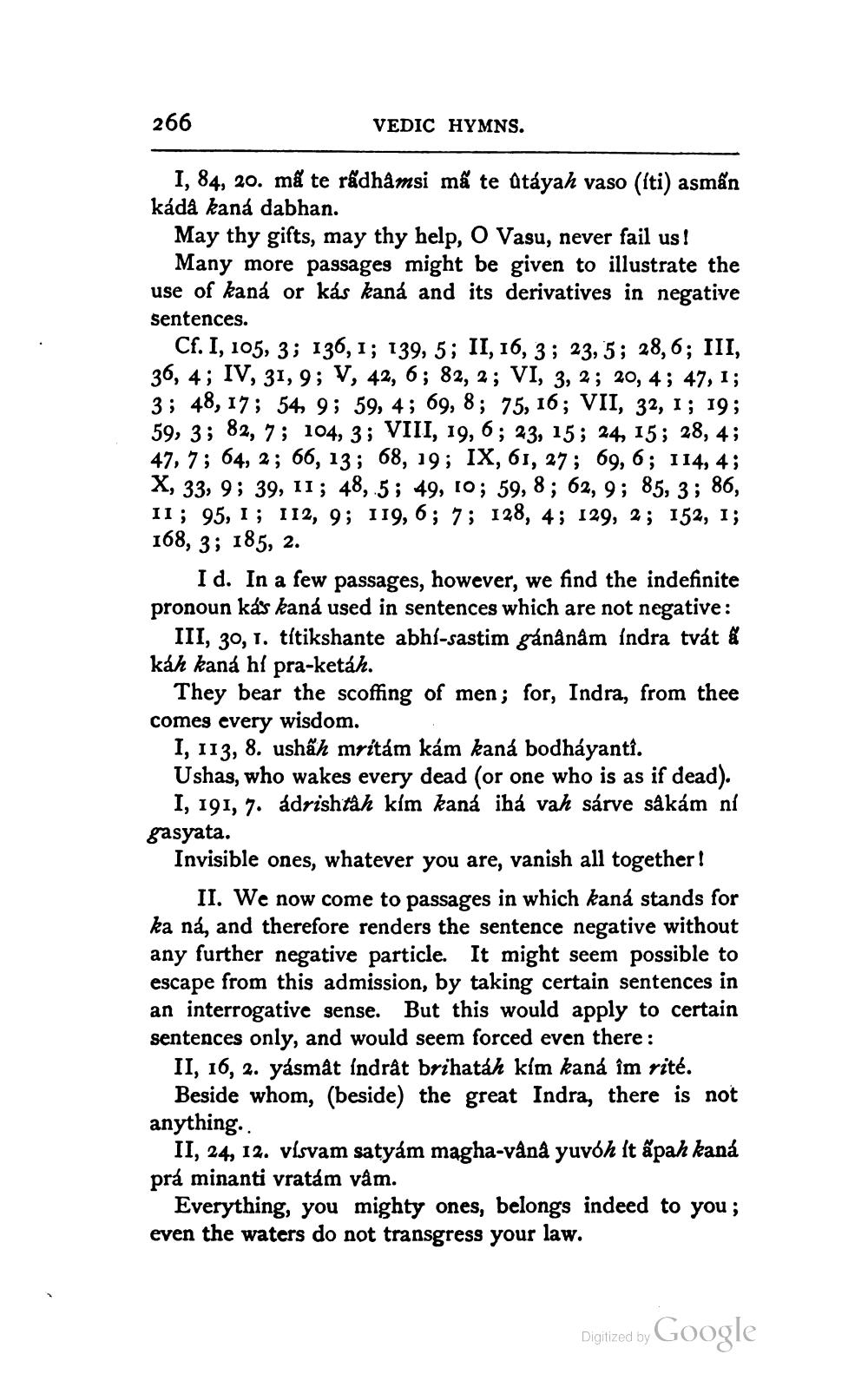________________
266
VEDIC HYMNS.
I, 84, 20. ma te râdhamsi mã te atayah vaso (Iti) asmấn kádå kaná dabhan.
May thy gifts, may thy help, O Vasu, never fail us!
Many more passages might be given to illustrate the use of kaná or kás kaná and its derivatives in negative sentences.
Cf. I, 105, 3; 136, 1; 139, 5; II, 16, 3 ; 23, 5; 28,6; III, 36, 4; IV, 31, 9; V, 42, 6; 82, 2; VI, 3, 2; 20, 4; 47, 1; 3; 48, 17; 54, 9; 59, 4; 69, 8; 75, 16; VII, 32, 1; 19; 59, 3; 82, 7; 104, 3; VIII, 19, 6; 23, 15; 24, 15; 28, 4; 47, 7; 64, 2; 66, 13; 68, 19; IX, 61, 27; 69,6; 114, 4; X, 33, 9; 39, 11; 48,5; 49, 10; 59, 8; 62, 9; 85, 3; 86, II ; 95, 1; 112, 9; 119, 6; 7; 128, 4; 129, 2; 152, 1; 168, 3; 185, 2.
I d. In a few passages, however, we find the indefinite pronoun kás kaná used in sentences which are not negative:
III, 30, 1. títikshante abhi-sastim gánânâm índra tvát & káh kaná hl pra-ketáh.
They bear the scoffing of men; for, Indra, from thee comes every wisdom.
I, 113, 8. ushấh mritám kám kaná bodháyanti. Ushas, who wakes every dead (or one who is as if dead).
I, 191, 7. adrishtåh kim kaná iba vah sárve såkám ní gasyata. Invisible ones, whatever you are, vanish all together!
II. We now come to passages in which kaná stands for ka na, and therefore renders the sentence negative without any further negative particle. It might seem possible to escape from this admission, by taking certain sentences in an interrogative sense. But this would apply to certain sentences only, and would seem forced even there:
II, 16, 2. yásmat indrât brihatáh kim kaná îm rité.
Beside whom, (beside) the great Indra, there is not anything..
II, 24, 12. visvam satyám magha-vânâ yuvoh ít ấpah kaná prá minanti vratám vám.
Everything, you mighty ones, belongs indeed to you; even the waters do not transgress your law.
Digitized by
Digitized by Google




